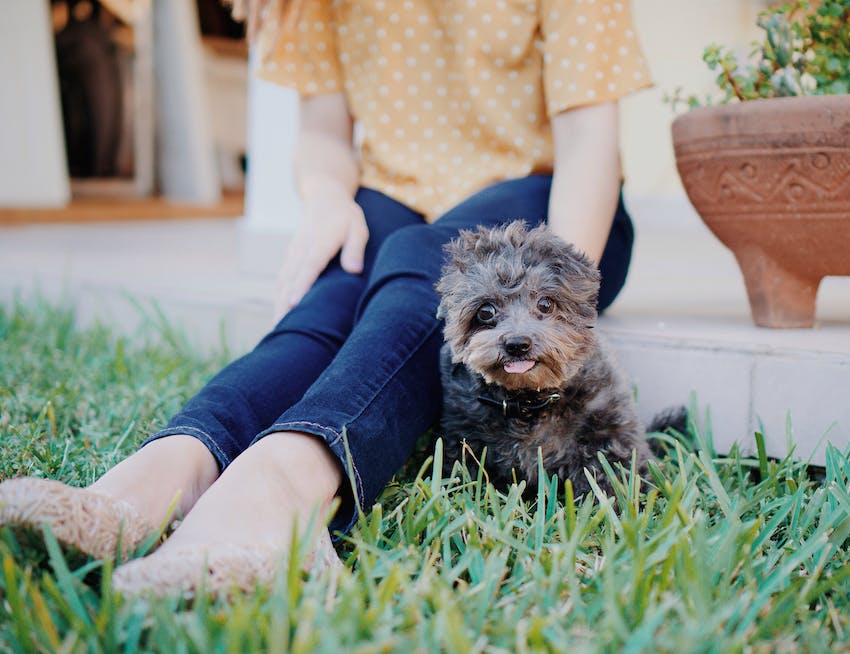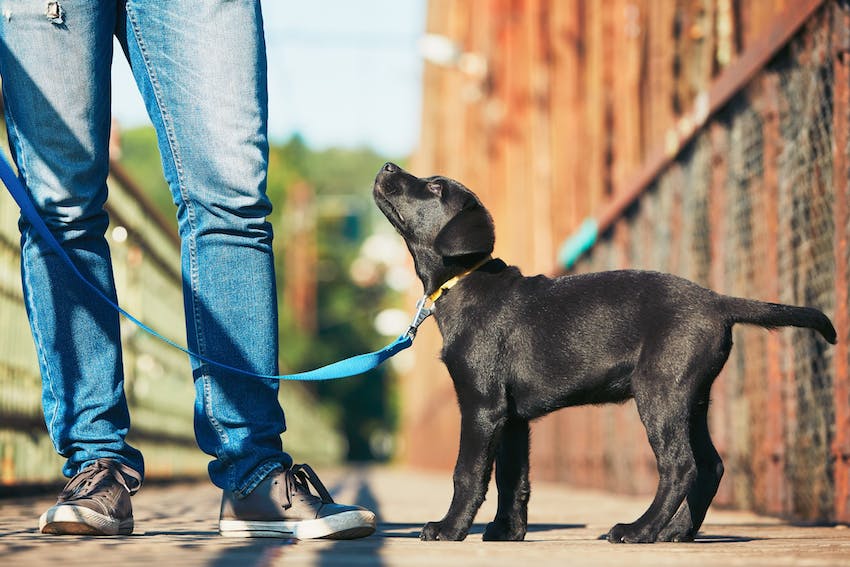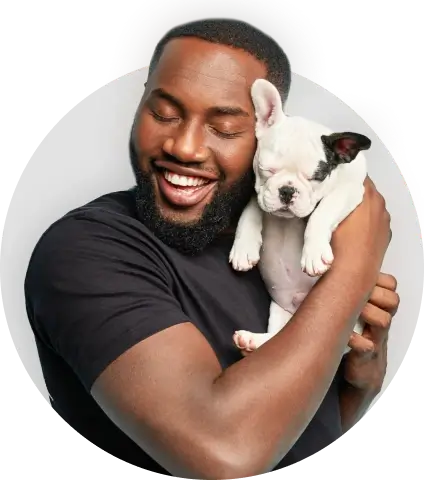Ready to help treat your pet to a healthy life?
10 New Puppy Owner Mistakes You Can Avoid
By : Brianna Gunter | Updated Mar 13, 2025
6. Not researching puppy food
With so many different dog foods out there, it can be tough to know what to feed your new puppy. Before just picking the first brand off the store shelf, it’s important to talk with your dog’s veterinarian about their specific dietary needs.
If you have an adult dog at home, be wary of feeding the same food to your new puppy. Puppies have high protein and fat needs compared to adult dogs, so they’ll thrive better on a diet designed just for them.
7. Feeding too much (or too little!)
While you’re choosing the best puppy food for your pet, it’s important to not fall into another new puppy owner mistake—feeding your pet too much food or not enough. Portion sizes vary greatly by breed, so talk to your puppy’s veterinarian and pay attention to quantity recommendations on food packaging.
Pay attention to your puppy’s body fat and eating habits as they grow. Active puppies that are getting the food intake they need will be neither overweight nor underweight. If your pup starts eating less, it could be a sign to stop serving her as much.
8. Not socializing puppy
Even if your new puppy will not be living alongside other pets, it’s crucial to make sure he’s socialized at a young age. Doing so will help ensure he can go to dog parks, doggy daycare, and busy social spaces without becoming aggressive or acting out. The American Kennel Club advises all dog owners to socialize pets within their first three months of life in order to set them on the right track for life.
9. Underestimating puppy’s attention needs
Active, growing puppies need a lot of attention and care, and not just when it comes to food and veterinary appointments. Some people underestimate how much playtime and walks their new puppy needs, not to mention cuddle sessions and training time. In order to grow into well-behaved, happy and socialized dogs, puppies shouldn’t be left alone all day.
If you work outside of home, consider taking some days off when you first bring your puppy home. Going forward, doggy daycare or a regular dog walker can be a good option for getting your growing pup the socialization and stimulation they need daily.
10. Not investing in puppy protection
Sure, young Fido is energetic and healthy, and he may not seem like he’s at much risk of harm at this time. But the future is unpredictable. And just like us, dogs age and become increasingly prone to health problems over time. There are a few different things you can do now to protect your new puppy long into the future. Some pet owners make the mistake of waiting for something bad to happen, when the truth is that the first few months of your puppy’s life are the best time to take advantage of extra protections. There are two actions in particular that you can take to help ensure the safety of your pet:
Get your puppy microchipped
The good news is that microchipping your pet is becoming an increasingly common part of the adoption process, with many shelters including it with initial vaccines and other care. But if your new puppy has not yet been microchipped, there’s no time like the present.
Pet microchips are about the size of a grain of rice, and they are injected just below your puppy’s skin. Once in place, the chip can be scanned by any veterinary office or shelter for your pet’s name and ownership information. Microchips are like an ID tag that can’t be broken or taken off, making them more effective than old-fashioned collars and metal tags.
In other words, if your new BFF ever goes missing, a microchip can help you two get reunited.
Enroll in puppy health insurance
Maybe you’ve already planned and budgeted for routine dog veterinary care, but what if it goes beyond that in the future? Accidents happen, and there are also no guarantees your pal won’t get sick. Depending on the situation, a good puppy insurance plan can be the key to unlocking many more healthy years with your furry companion.



